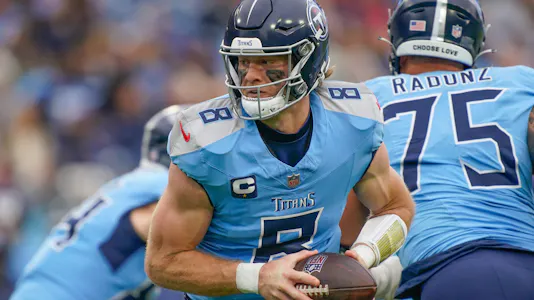NCAA Adopts "Draw the Line" Campaign to Educate Students About Problem Gambling

The NCAA continues its focus on educating and protecting student-athletes from potential harm associated with the growing sports betting industry across America. Problem gambling is a significant concern for our best sports betting sites.
The NCAA has launched "Draw the Line," a campaign to educate student-athletes about the potential risks of sports betting. The campaign also targets all viewers, consumers, and participants of college athletics.
Sports betting is everywhere
Sports betting has become increasingly ingrained in the North American sports viewing experience and, according to statistics, has dramatically affected college-age students.
In 2023, the NCAA conducted a study that revealed that 67% of 18 to 22-year-olds on college campuses have engaged in sports betting. According to the same study, about 10% of those student bettors report gambling addictions.
The mainstreaming and broad acceptance of legal sports betting in the American market has raised some major concerns.
“Sports betting is everywhere, especially on college campuses, so it’s critical student-athletes get the real story about how it can impact them and their ability to play,” said NCAA President Charlie Baker. “We know some bettors are harassing student-athletes and officials, so that’s why we are advocating for policy changes at the state level and launching monitoring tools around championships to refer serious threats to law enforcement.”
Timing is everything
The NCAA's Draw the Line campaign launch comes at the busiest time of the year for college betting, during the NCAA Tournament. The American Gaming Association expects $2.72 billion to be legally wagered on the March Madness tournament. An expected $1 billion in revenue is expected to be generated from the three-week tournament, about 85% of the NCAA's annual revenue.
That $2.72-billion figure is a 2.2% year-over-year increase from last year's tournament.
For comparison's sake, the Super Bowl saw an estimated $1.4 billion wagered on the 2024 contest.
Other NCAA efforts
The NCAA has been a pioneer in educational services for problem gambling in the American market. Its Draw the Line campaign is the latest effort to raise awareness among students and the public about the pitfalls of the legal sports wagering industry.
Charlie Baker, NCAA President, earlier this year, announced a collaborative effort with the NFL in the updating and provision of educational content surrounding problem gambling, and the body has also signed on with Signify Group to further study the effects of sports gambling.
Ohio, Maryland, and Vermont have recently stopped the ability for prop betting opportunities on individual college athletes in their jurisdictions, with the NCAA's backing. Those states joined 20 others that limit wagers on individual college players.
In a letter to Baker, Ohio Casino Control Commission executive director Matthew Schuler last month said, “First and foremost, the occurrences of and increase in the harassment of student-athletes based upon their performance or statistics in an intercollegiate athletics competition presents a clear and present danger to the best interests of Ohio. Based upon the information the NCAA provided, it is apparent to me that player-specific prop bets may be directly related to player-specific harassment, including threats — meaning a decrease in the availability of these types of wagers could lead to a decrease in harassment.”
Baker, for his part, has gone on record saying that, "Student-athletes are getting harassed by bettors, and billion-dollar ad campaigns are targeting young people across the country. We need all the help we can get, including from regulators and sportsbooks, to protect student-athletes and protect the integrity of the games.”







